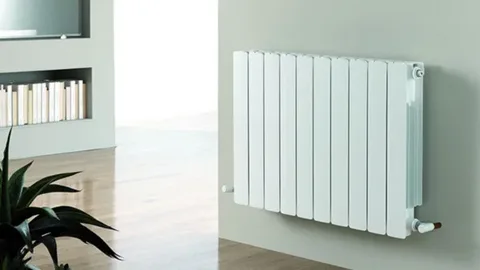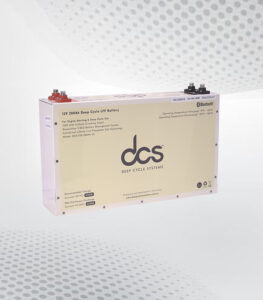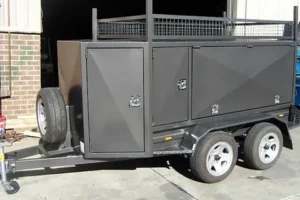Hydronic heating panels have emerged as a front-runner in the quest for efficient and comfortable home heating. Known for their cost-effectiveness and eco-friendly nature, these panels provide a sophisticated solution for those seeking warmth without breaking the bank. This blog post explores the myriad benefits of heating panels, offering insights into their installation, maintenance, and cost comparisons with traditional heating systems.
What Are Heating Panels?
Heating panels utilize water as a medium to transfer heat, presenting a modern alternative to traditional radiators. These panels are connected to a central boiler system, where water is heated and circulated through a network of pipes to the panels. Once the hot water reaches the panels, they emit gentle, radiant heat that spreads evenly throughout the room. This method ensures consistent warmth and eliminates the need for forced air, resulting in a quieter and less intrusive heating solution. Heating panels are highly efficient, using water’s superior heat retention properties to maintain a stable indoor climate. Their slim and sleek design allows them to blend seamlessly with various interior styles, offering functionality and aesthetic appeal.
Benefits of Heating Panels
Heating panels provide a range of advantages that make them a popular choice for modern home heating. One significant benefit is their energy efficiency. By using water as the heat transfer medium, these panels require less energy to maintain a stable indoor temperature, translating to lower energy bills and a smaller carbon footprint.
Unlike traditional heating systems that can dry out the air, hydronic panels emit a gentle, radiant heat that balances air moisture, making it a healthier option for families, especially those with respiratory issues.
Additionally, their design flexibility is noteworthy. Heating panels’ slim and sleek profiles mean they can be integrated into various interior styles without being obtrusive. This aesthetic versatility allows homeowners to enjoy effective heating without compromising on décor. Moreover, hydronic systems operate quietly, unlike forced-air systems that can produce noise and disrupt the peacefulness of a home.
Another benefit is their even heat distribution. Heating panels eliminate cold spots and drafts, ensuring a consistently comfortable environment in every room. This efficient heat delivery also reduces wear and tear on the heating system, extending its lifespan. Heating panels offer a comprehensive solution that balances efficiency, health benefits, and design, making them a valuable addition to any home.
Installation Process of Heating Panels
The installation process of heating panels starts with a thorough assessment of your home by a qualified technician to determine the optimal placement for the panels. This ensures that the panels are positioned to maximize efficiency and comfort. The existing boiler system may need upgrades or adjustments to be compatible with the new hydronic setup.
Following the assessment, the technician will install a network of pipes throughout your home to connect the panels to the central boiler. This involves routing the pipes through walls, floors, or ceilings, depending on your home’s layout. Although this might sound invasive, professional installers are skilled at completing the task with minimal disruption to your daily life.
Once the piping is in place, the hydronic panels are mounted and connected to the system. The technician will then test the entire setup to ensure that the water circulates correctly and that there are no leaks or issues. They will also adjust the system settings to optimize performance based on your needs and preferences.
Finally, the technician will provide a brief overview of the system’s operation and any basic maintenance tasks you should know, such as checking for leaks and periodically bleeding the panels. This hands-on explanation ensures you are comfortable with your new heating system and learn how to maintain it effectively.
Maintenance Tips for Heating Panels
Maintaining heating panels is straightforward but essential for optimal performance and longevity. Start by regularly inspecting the piping system for any leaks, as undetected leaks can reduce efficiency and cause potential damage over time. Monitoring the boiler is also crucial, ensuring it operates smoothly and efficiently. An annual service by a professional technician is recommended to clean the system, check for airlocks, and ensure all components are in good working order.
In addition, periodically bleeding the panels is necessary to remove any trapped air, which can hinder the system’s performance. Homeowners can typically do this simple task, and it helps maintain consistent heat distribution. If you notice any unusual noises or reduced heating efficiency, it may be a sign that air has entered the system or that a minor fault needs addressing.
Regularly checking the thermostat settings and ensuring they are correctly programmed can also help optimize the system’s efficiency. Furthermore, keeping the panels clean and free from obstructions will allow for better heat emission. Dust and debris can accumulate over time so that a gentle wipe-down can make a significant difference.
Lastly, be mindful of any changes in your heating needs and communicate these with your technician during annual servicing. This proactive approach will help keep your heating panels running smoothly and efficiently.
Comparing Costs: Heating panels vs. Traditional Systems
When comparing costs, heating panels offer long-term savings that outweigh the initial investment. Traditional heating systems often rely on fossil fuels, leading to fluctuating energy prices and higher utility bills. Hydronic systems, by contrast, use water’s excellent heat retention properties to maintain a stable indoor temperature with less energy, reducing overall consumption. This efficiency translates to substantial savings over time.
Additionally, because hydronic panels operate quietly and distribute heat evenly, they experience less wear and tear, resulting in lower maintenance costs. Homeowners will also appreciate the added value to their property, as modern, efficient heating systems are a strong selling point. While the upfront costs may seem daunting, the financial benefits become evident in reduced energy bills and fewer repair expenses, making heating panels a cost-effective and sustainable choice.
Eco-Friendly Features of Hydronic Heating panels
Hydronic heating panels are an excellent choice for environmentally conscious homeowners. One of their eco-friendly features is their ability to be paired with renewable energy sources, such as solar panels or geothermal heat pumps, further reducing the system’s carbon footprint. This integration allows for a greener, more sustainable heating solution. Moreover, hydronic panels’ efficient heat distribution and stable temperature maintenance contribute to energy conservation.
Unlike traditional systems that frequently cycle on and off, hydronic panels provide consistent warmth, which reduces energy waste. Additionally, using water as a heat transfer medium is inherently more sustainable than systems that rely on fossil fuels. Water’s superior heat retention properties mean less energy is needed to maintain a comfortable indoor climate, decreasing overall energy consumption.
Another eco-friendly aspect is the longevity of hydronic heating systems. Their durable design and efficient operation mean they require fewer replacements and repairs over their lifespan, reducing the environmental impact of manufacturing and disposing of heating components. Finally, because heating panels operate quietly and without the need for forced air, they contribute to a healthier indoor environment by minimizing dust and allergens, enhancing the overall quality of living spaces while being kind to the planet.
Customer Testimonials and Case Studies
Homeowners who have switched to heating panels consistently report notable improvements in comfort and energy efficiency. For instance, one homeowner shared, “Since installing heating panels, our home feels much more consistently warm, and we’ve seen a noticeable drop in our energy bills.” Such feedback is shared among users who appreciate the even heat distribution and the quieter operation of hydronic systems compared to traditional forced-air systems.
In another case study, a family living in an older property found that retrofitting their home with hydronic panels brought significant benefits. They remarked on the ease of installation and the enhanced aesthetic appeal, noting how the slim panels blended seamlessly with their home’s décor. Their experience underscores the versatility of hydronic panels in various settings, from modern homes to older buildings.
Additionally, many users highlight the health benefits associated with hydronic heating. One parent commented, “Our child’s asthma symptoms have improved since we switched to hydronic panels. The air feels cleaner, and there’s no more dry heat.” This testimonial echoes the sentiments of many families who value the healthier indoor environment provided by hydronic systems.
Overall, the real-world experiences of satisfied customers vividly illustrate the practical advantages of upgrading to heating panels, reinforcing their reputation as a superior home heating solution.
Cost Considerations of Heating panels
When evaluating the cost of heating panels, it’s essential to consider both the initial investment and long-term savings. The upfront costs for hydronic systems can be higher than traditional heating systems, mainly due to installation expenses, particularly if retrofitting is involved. Installation typically requires skilled labor to set up the water-based heating system, including piping, a boiler, and control systems, which can add to the cost. However, heating panels are highly energy-efficient, often resulting in lower operational costs.
They offer consistent, zoned heating, allowing users to heat specific areas only when needed, which reduces energy usage. Furthermore, because hydronic panels operate at lower temperatures and maintain consistent warmth, they tend to have longer lifespans with minimal maintenance. When these long-term savings are factored in, heating panels can be cost-effective for those looking for efficient, comfortable heating solutions.
Conclusion
Heating panels represent a significant advancement in home heating technology, providing a practical solution for those seeking comfort and sustainability. These systems utilize water’s exceptional heat retention properties to offer a consistently warm indoor environment without the drawbacks associated with traditional heating methods. Homeowners benefit not only from lower energy bills but also from a quieter, healthier living space. The adaptability of hydronic panels to various home designs and their compatibility with renewable energy sources further underscore their appeal. The health benefits, such as balanced air moisture and reduced allergen circulation, make them particularly advantageous for families with respiratory concerns.
FAQs
1. Are heating panels compatible with renewable energy sources?
Heating panels can be seamlessly integrated with renewable energy systems like solar panels and geothermal heat pumps, enhancing their sustainability and reducing overall energy consumption.
2. How long do heating panels last?
With proper maintenance, heating panels can have a lifespan of 20 years or more, making them a long-term investment for efficient home heating.
3. Do heating panels require regular maintenance?
Regular maintenance is advisable to ensure optimal performance. This includes an annual service by a professional technician and occasionally bleeding the panels to remove trapped air.
4. Can heating panels be installed in existing homes?
Yes, heating panels can be retrofitted into existing homes, although some modifications may be necessary to accommodate the new system.




